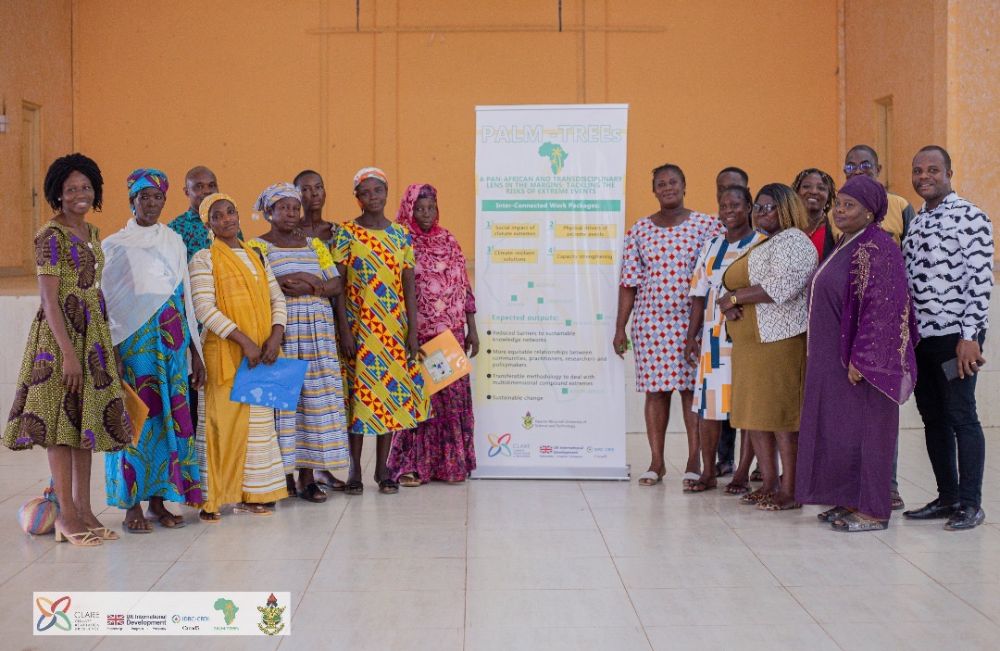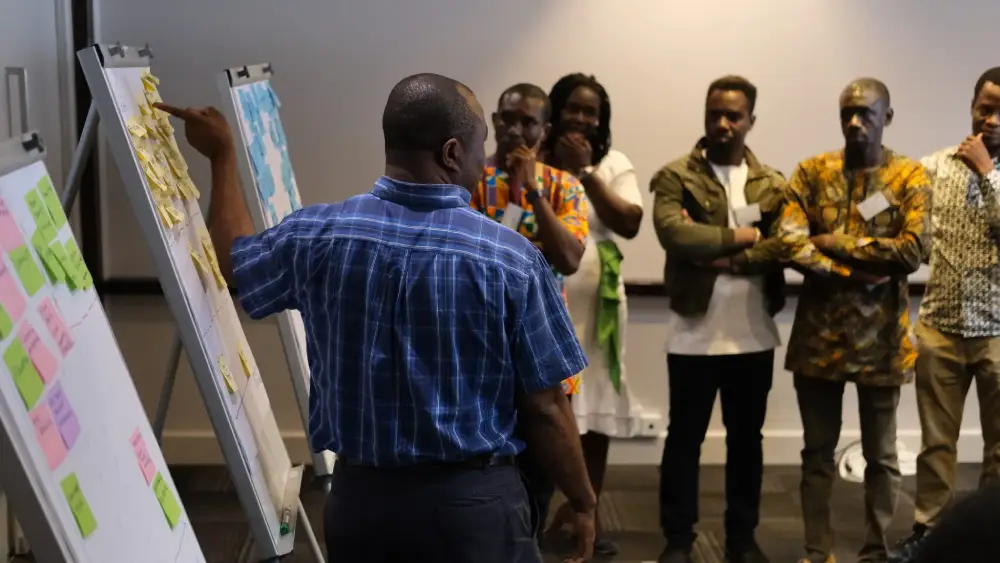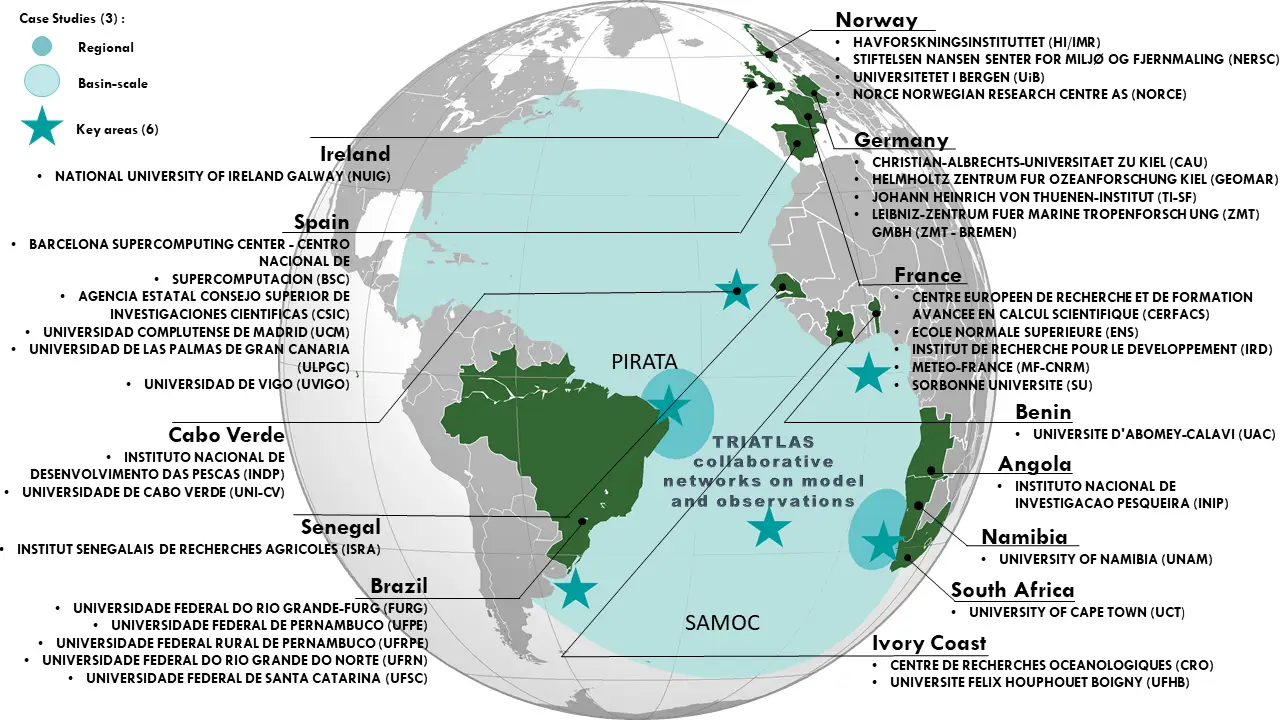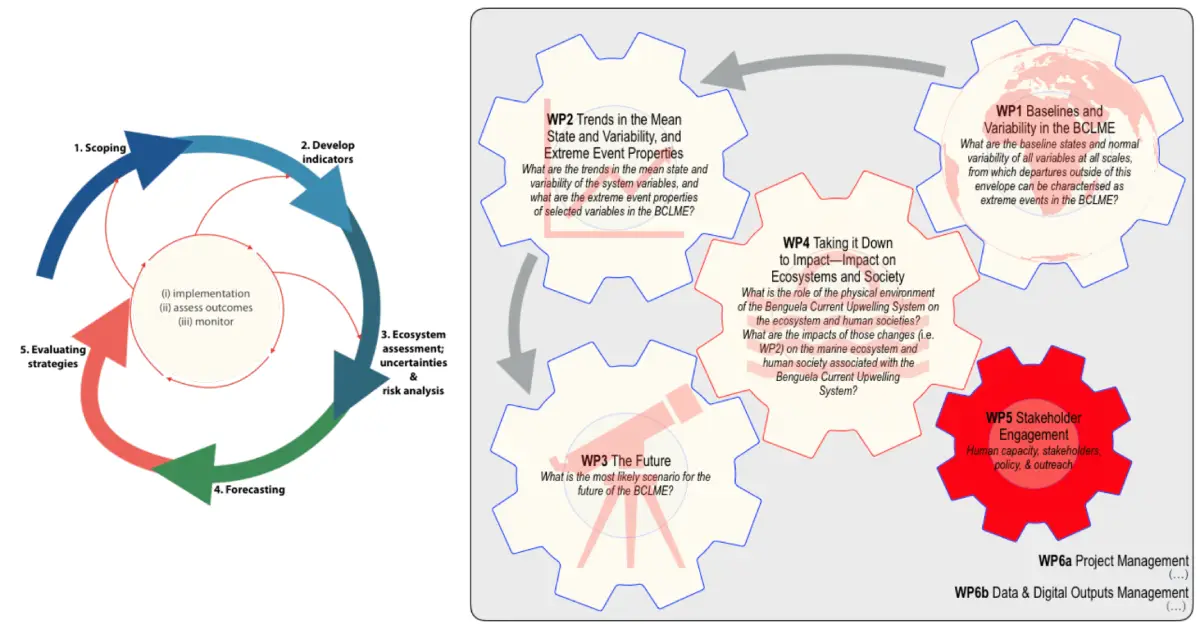our projects
Our researchers are involved in several projects that harness the centre’s capacity and talent to deliver research with African and global impact.
Current Projects
Pan-African and transdisciplinary lens on the margins: Tackling the risks of extreme events (PALM-TREEs)
PALM-TREEs is a transdisciplinary project that aims to equip marginalized communities to better respond to extreme climatic events in Africa such as droughts, floods and heat waves, as well as to their interconnected and cascading socio-economic impacts.
The project runs from 2023-2026 and is funded by the CLARE programme, a UK-Canada research framework programme on climate change adaptation and resilience mainly funded by the UK Government’s Foreign, Commonwealth & Development Office alongside International Development Research Centre (IDRC).
Past Projects
Role of solar radiation management (SRM) and future livestock production in Africa
Increased livestock production is needed to meet rising nutrition demands in Africa, but climate change – which is projected to increase drought and heat stress – would decrease the quality and quantity of livestock feed, meat and milk.
This research project examined how SRM might affect the future of rangeland and livestock production across Africa, to assess whether it could be used to reduce the risks posed by global warming to food security. The work contributed African policymakers more effectively engaging in debate around whether SRM could be an option to reduce the risks posed by global warming to food security.
Led by Prof Babatunde Abiodun, the project ran from 2023-2024 with funding from the Degrees Initiative, which supports SRM research from the Global South.
Tropical and South Atlantic climate-based marine ecosystem prediction for sustainable management
The TRIATLAS project contributed to sustainable management of human activities affecting Atlantic marine ecosystems, which is critical to maintain its health and to support the blue economy of bordering countries.
The work focused on delivering knowledge of the current state and future changes of the Atlantic marine ecosystems. Specifically, this was achieved through a basin-wide approach that integrated research from the North and South, and which closed critical knowledge gaps in the Tropical and South Atlantic that impede an understanding of the entire basin.
Carried out from 2019-2023 with 34 partners from 13 countries, it was funded by European Union’s Horizon 2020 research and innovation programme under grant agreement No 817578.
Extreme Events in the Benguela Upwelling System (EXEBUS)
The EXEBUS project focused on understanding how changes and extreme events in the Benguela Upwelling System (BUS) affect ecological and socioeconomic systems.
By studying the drivers of change and the resulting impacts, EXEBUS aimed to help inform policies and practices that promote resilience in the face of a changing climate. The project also sought to improve predictions of extreme events and their consequences, which can help communities and industries prepare for future challenges.
EXEBUS ran from 2020-2023 and was sponsored by the Research Council of Norway, South Africa’s National Research Foundation, and the US National Science Foundation.




